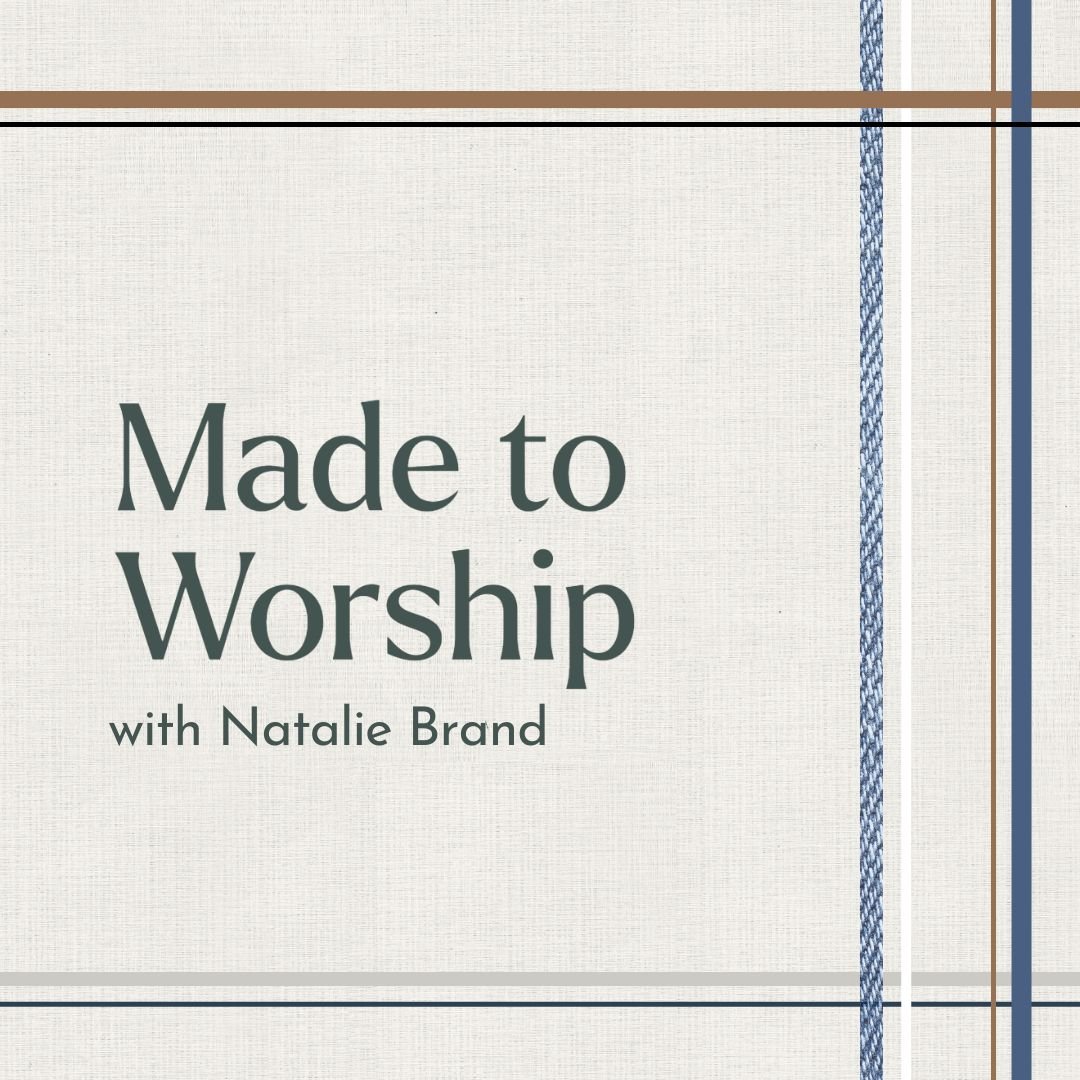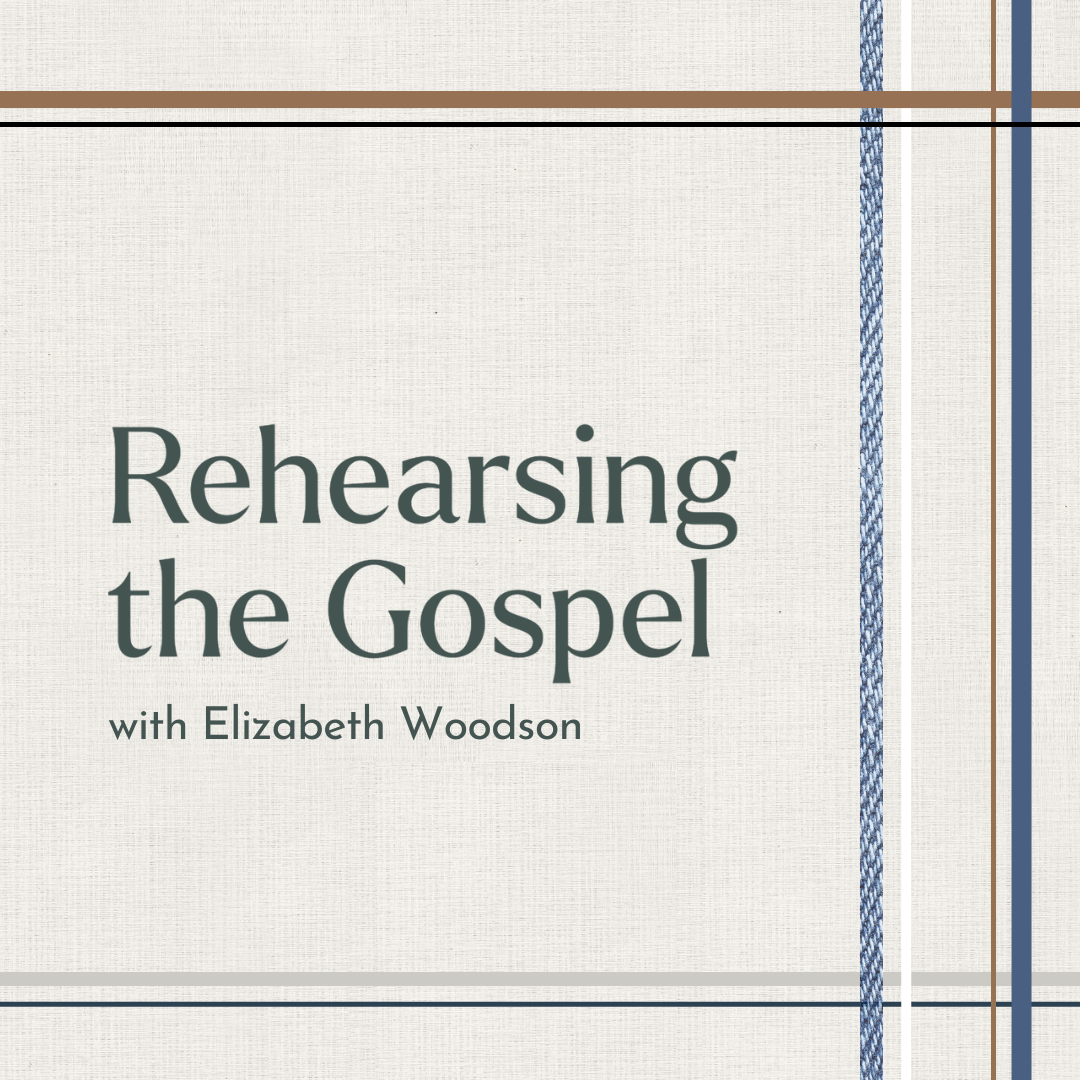4. Loving the Local Church with Megan Hill
In this episode, Hunter chats with Megan Hill about how to love and serve your local church. We talk a lot about the local church here at Journeywomen, and this conversation provides an even deeper dive into our heart for the church. Megan shares about the importance of the church in our personal sanctification, as well as in our evangelism and our witness to the watching world. We pray that this episode encourages you to invest deeply in your own local church, and that it reminds you of the beauty of God’s church.
INTERVIEW QUESTIONS
What is the local church? What makes the church special?
What signs has God given the church to show that we belong to him?
If we belong to the Lord, why is it important that we love what he loves?
What does loving God’s people cost us? What enables us to love in this sacrificial way?
How does our love for one another serve as a witness to the world around us?
How does loving God’s people bring us into fellowship with Christ and produce Christlikeness in us?
What encouragement do you have for the seasons in which we find it difficult to love the church or for those who have been hurt by the church?
What unites us when we feel like we have nothing in common with our brothers and sisters in our churches?
What are the means of grace that God had given the church?
Why does corporate worship exceed personal worship?
How do you prioritize both?
Who has had the greatest impact on the way you love the local church?
NOTES & QUOTES
“There are many of us on varying levels who have had hurtful experiences in the church, whether it's we feel like people have neglected us and ignored us or our gifts haven't been used or whether we've had bad pastors and elders and who have sinned against us in really grievous ways.”
“Scripture is not silent about the ways that we are hurt among God's people. And in fact, there are all these examples in Scripture of people who were hurt.”
“Scripture doesn't pretend it's always easy and sunshine and roses in the church. God didn't have to put that in Scripture, and he put it in Scripture so that we would know that really hard, hurtful things happen in the church. Also, it happened to Paul, of all people, who had poured out his life for the church. And yet, I think we can also take encouragement that it didn't so derail Paul that he stopped pouring into the church. That happened, and yet he's still writing to the church, and he's still caring for the church, and he's still praying for the church. There's something there that he believes is worth investing in, mainly because it's what the Lord loves. And so he was committed to loving what God loves.”
Insight #1—Lauren Bowerman:
We know there’s a chance that if you’re listening you might have experienced hurt in the context of your local church body—whether from members, from leadership, or even from your pastors. First I want to say that we are so so sorry. To give yourself to a church body and for that place to become a place of hurt is deeply painful. If that is part of your story, our prayer is that you would be able to see God’s heart toward you, no matter what your experience is. He loves the church, and he is grieved when his people expeirence hurt at its hands. He longs for people to experience the unity and love and fellowship that is possible within the church. His heart toward his people is only goodness, kindness, and love.
That said, we know for some that this call to love the church might feel impossible. BUT, at the same time, as believers we love what the Lord loves, right?
And God deeply loves the church. God has promised to be faithful to his church. In Matthew 16, Peter proclaims of Jesus, “You are the Christ, the Son of the living God” and Jesus tells his disciples that on the rock of Peter’s confession he will build his church and that not even the gates of hell shall prevail against it (Matt. 16:16-18). We see a beautiful picture of God’s church enduring to the end in Revelation 21, “And I saw the holy city, new Jerusalem, coming down out of heaven from God, prepared as a bride adorned for her husband. And I heard a loud voice from the throne saying, “Behold, the dwelling place of God is with man. He will dwell with them, and they will be his people, and God himself will be with them as their God” (Rev 21:2-3).
Friends, God will not forsake his church. She is beautiful to him, Christ died on her behalf, and he has promised to sustain her until the end. He loves her; and so should we.”
“In the plurality of the church, in the multiple members of the church, we really get to experience the fullness of Christ in a way that we can't on our own.”
“It's when we come together, then we get to experience the fullness of Christ in a way that we just couldn't on our own.”
“As we read the Scripture, we see this corporate emphasis. When you’ve got your Spotify on and you're singing worship songs, that's great, that edifies your heart. When you go to church and you sing, you edify your heart, but you're also encouraging your sister or your brother who's next to you. And maybe she can't sing, maybe she's too weak or tired or sad or discouraged, but you're singing for her. When you're in your prayer closet and you're praying, that is so great. But then, when you come to worship, your prayers are encouraging the person next to you and you're praying for them and they're praying for you and you're lifting each other up. When you're receiving the Word by yourself in your devotions. that's wonderful. The Lord speaks to you and he pricks your heart and he encourages you and ministers to you. But when you come to worship and the Word is read out or it's prayed, there's this accountability. You're all receiving it together. We hear a “one another” command and here we are right with one another. We have an opportunity to put it into practice right away. There is something even better, even sweeter, about those things when we do them together in the church.”
“When I come to worship with you and I agree to take on your burdens—to weep with those who we weep and rejoice with those who rejoice and to bear one another's burdens—that's an additional cost to me that I'm taking on not only my own struggles and troubles, but I'm taking on yours as well.”
“There's a cost in terms of vulnerability that anytime you come in with other sinners, you're going to be hurt. And there are chances that you're going to be misunderstood, that somebody's going to speak poorly of you, that somebody's going to overlook you, that somebody's going to sin against you. You're coming into a space where you're going to be hurt. All of those things are real costs. It costs us something in terms of money—if we're investing our resources in the church, if we're giving to the work of the church, that's money that we can't spend on other stuff.”
“And yet, that's nothing that Christ didn't do also. Though he was rich, for our sake he became poor. He came, he gave up the riches of heaven that he might come in human flesh to gather a people for himself, to gather a church for himself. He went to the cross with his people in view, Ephesians tells us, so that he might wash with water and sanctify the church and present her to himself in glorious splendor. When he enters into human relationships with people, he paid the price for our sins. And so that can be our encouragement.”
“Yes, I'm giving up something for the Church, but it's not anything that Christ Himself didn't already give up for the Church as well.”
Insight #2—Lauren Bowerman:
What was the cost that Christ bore for the church? And how can we model that in our commitment and service to our local churches?
As we read about the life of Christ, we see him over and over again exhibiting a posture of humility and sacrifice. Paul puts it beautifully when he says of Jesus that “though he was in the form of God, [he] did not count equality with God a thing to be grasped, but emptied himself, by taking the form of a servant, being born in the likeness of men. And being found in human form, he humbled himself by becoming obedient to the point of death, even death on a cross” (Phil. 2:6-8). Christ himself said that he “came not to be served but to serve, and to give his life as a ransom for many” (Mark 10:45). During his life and ministry Jesus saw needs and met them, always giving of himself to serve and love others. As his hour of death approached, he tied a towel around his waist, got down on his knees, and washed his disciples feet (Matt. 9:6, Mark 2:10). And, of course, his ultimate act of love and sacrifice is seen in his obedience unto death on the cross, where “Christ loved the church and gave himself up for her” (Eph. 5:25).
We have this example of love and sacrifice in the Scriptures, where we see the cost that Christ was willing to bear for his people—his church! He is the ultimate shepherd, who laid down his life for the sheep (John 10:11). Why did he do that? Paul tells “he died for all, that those who live might no longer live for themselves but for him who for their sake died and was raised” (2 Corinthians 5:15).
Have you ever noticed how in the Old Testament laws, the Israelites were told, love your neighbor as yourself (Lev. 19:18)? Jesus restates this command too, but he also says something else. In John 15:12 he says, “This is my commandment, that you love one another as I have loved you.”
Friends, do you see how the standard of love has been raised? Do you see the level of love and sacrifice we are called to demonstrate? As we live and engage in our local church contexts, we are called to love as we have been loved. We are told to—by the power of the Holy Spirit in us—model our Savior in his sacrificial and obedient love. Yes the cost is high, yes it is difficult to love sometimes, and yes engaging our churches with this kind of vulnerability and service and humility is scary…but we are not being asked to do anything Christ himself has not done. His love calls us higher. And by his power we can obey.”
“The Lord in his wisdom knows that we need other people to teach us some of the Christlike gifts that we need, like serving other people, like laying down our life for them, like sharing and giving what we have to those who have none. And if we were on our own, we wouldn't even have that opportunity to learn those things.”
“When we talk about the means of grace, we're talking about the things that the Lord has promised to bless and the things that the Lord has promised to meet us in and minister to us through. And those are primarily God's Word and then sacraments or ordinances, the Lord's Supper and baptism, and also prayer.”
“These are the things that we prioritize when we're looking for a church. How are they handling God's Word? Are they faithfully handling God's Word? Is God's Word important? Is it really central to what they're doing? How about the Lord's Supper and baptism? Is the way that's practiced aligned with my convictions? Does that seem like a biblical way that they're practicing that? Are they practicing that? Is that being done? Is prayer vital in this church? And is it something that's being done in the worship service? Is it something that's being done at other times? Are people seeking God's face in prayer?”
”We look for those markers because those are the ways that God says that he's going to pour out his grace on us—through those means, through those ways. And so those are especially important things that we want to be doing with our church.”
RESOURCES
Meg is Not Alone by Megan Hill
A Place to Belong by Megan Hill
Sighing on Sunday: 40 Meditations for When Church Hurts by Megan Hill (coming in May)
DISCUSSION QUESTIONS
What is your experience with church? If you’re discussing these questions with a group, share if you’re comfortable. If you’re personally processing these questions, journal your answer.
How have you seen the love and unity of a church body be a witness to the world?
How have you experienced your local church producing Christlikeness in you?
How has the gospel united you with brothers and sisters with whom you otherwise have nothing in common?
Describe the importance of corporate worship in your life.
What might you do or implement in light of this week’s episode?
EPISODES FROM THE BACK TO THE BASICS SERIES
ARTICLES FROM THE BACK TO THE BASICS SERIES
IMPORTANT NOTE
Journeywomen interviews are intended to serve as a springboard for continued study in the context of your local church. While we carefully select guests each week, interviews do not imply Journeywomen's endorsement of all writings and positions of the interviewee or any other resources mentioned.
Affiliate links used are used where appropriate. Thank you for supporting the products that support Journeywomen!

















